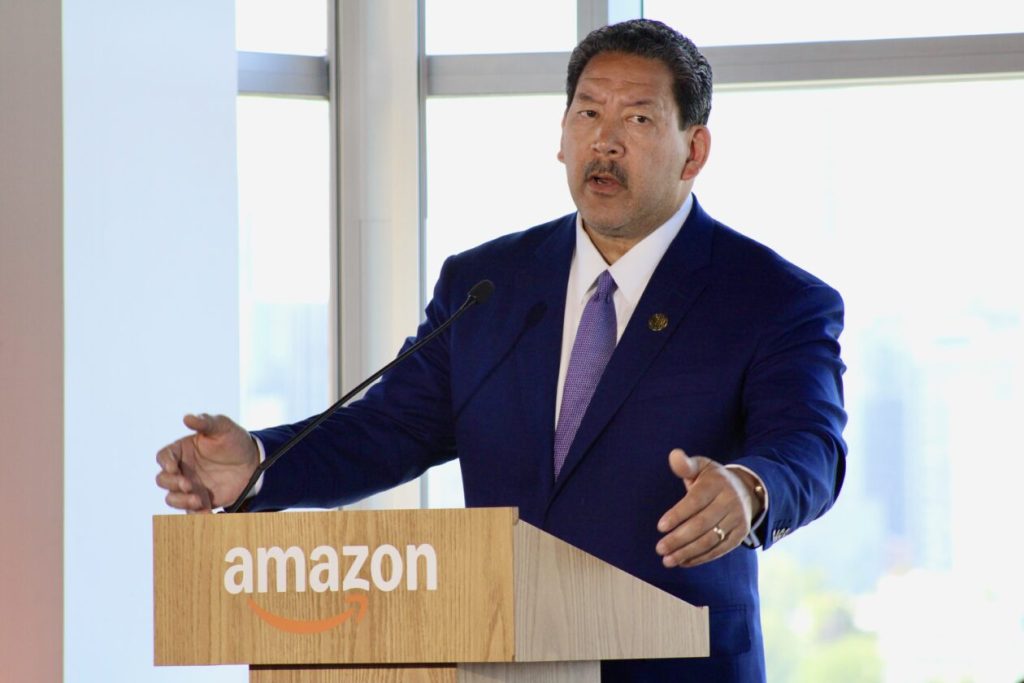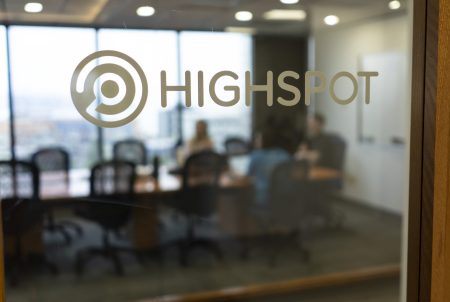Mayor Harrell Calls on Seattle’s Tech Giants to Give Back While Balancing Economic Growth
Seattle Mayor Bruce Harrell is walking a delicate tightrope: encouraging tech giants to continue fueling the city’s economy while asking them to take greater responsibility for addressing the challenges their growth has created. Speaking at a recent Fremont Chamber of Commerce event, Harrell didn’t mince words when addressing the tech industry’s obligations to the city that helped them thrive. “Microsoft… they made $88 billion last year… they have an obligation to give back to society, as does Amazon,” he stated plainly. This call for corporate responsibility comes as Harrell navigates his re-election campaign against progressive challenger Katie Wilson, highlighting the complex relationship between Seattle’s government, its tech-driven economy, and growing concerns about affordability and equity.
The mayor’s message reflects a consistent theme throughout his administration – valuing the economic contributions of tech companies while holding them accountable for their impact on the community. Seattle has transformed into what Harrell calls a “city of innovation” and “a great launching pad and fertile grounds for large companies,” developments he views positively. However, this growth has come with significant challenges: skyrocketing housing costs, transportation congestion, and community displacement. Since taking office in 2022, Harrell has attempted to strike a balance, telling GeekWire earlier this year that when it comes to Amazon, Seattle’s largest employer, “We value their jobs… We also believe in a culture of accountability.” At the 2022 GeekWire Summit, he encouraged business and tech leaders to become more civically engaged, saying, “There’s just plenty of opportunities for you all to engage, and I’m just a call away to facilitate that engagement.”
The November mayoral race has become a referendum on how Seattle should manage its relationship with the tech industry. Harrell, a former telecom attorney, faces Katie Wilson, a community organizer who helped craft the city’s “JumpStart” payroll tax and who narrowly led in the August primary with nearly 51% of the vote. Wilson was motivated to run after Seattle voters approved a measure creating a publicly funded social housing developer financed by a 5% tax on high salaries – a measure Harrell opposed in favor of an alternative funding mechanism supported by Amazon and Microsoft. This race encapsulates the city’s ongoing struggle to balance progressive taxation and social programs with maintaining a business climate that keeps tech companies investing locally. Harrell acknowledged this tension at Wednesday’s event, noting that “the city lost 10,000 jobs from Amazon” following years of friction over tax policy, and warning that continually increasing taxes is “not a sustainable strategy.”
Despite these concerns, Harrell supported a proposal earlier this year that would shift more of the business tax burden to larger companies while shielding smaller businesses. This continues the complicated dance with tech giants that has defined Seattle politics for years, including the controversial 2018 “head tax” that was approved and quickly repealed while Harrell was city council president. Wilson, for her part, told GeekWire she aims to have a productive relationship with Amazon and other tech companies, acknowledging they are “very important players in our city and our economy.” However, she has expressed interest in diversifying Seattle’s economic base beyond tech, cautioning on Reddit that “We’ve really been blithely riding the tech wave for the past 15 years and I don’t think we can just assume that will continue.”
At the Chamber event, Harrell also addressed public safety initiatives, including Seattle’s new Real Time Crime Center (RTCC) – a high-tech operations center that centralizes surveillance footage and data to help police respond to crimes more effectively. This technology-driven approach to law enforcement has drawn criticism, including from Wilson, who raised concerns about federal agencies potentially using surveillance footage to target immigrants. Harrell countered these concerns, asserting that “third parties cannot obtain footage” and emphasizing that similar systems exist in other cities. “We have actually caught criminals because of the technology,” he noted, defending the investment in technological solutions to public safety challenges.
The broader context of Harrell’s tech-focused governance extends to emerging technologies as well. Last month, he announced a “responsible AI plan” that outlines guidelines for Seattle’s use of artificial intelligence while supporting the AI sector as an economic driver. This comprehensive approach illustrates Harrell’s vision for Seattle: a city that embraces technological innovation while attempting to manage its impacts through accountability measures and community reinvestment. As the November election approaches, Seattle voters face a consequential choice between Harrell’s balanced approach to tech governance and Wilson’s more progressive vision that would ask more from the city’s largest companies. The outcome will likely shape Seattle’s relationship with its tech giants for years to come, determining whether the city continues as a tech hub while addressing growing concerns about equity and livability.















